Of the Liver cancer is also known as Liver carcinoma designated; This disease is malignant tissue that resides in the liver. Although this disease occurs rather rarely in the western industrialized countries, the trend is increasing here too. In Southeast Asia and Africa, however, liver cancer is one of the most common types of cancer.
What is liver cancer?
.jpg)
© Kateryna_Kon - stock.adobe.com
Malignant tissue in the liver is also called Liver cancer designated. This form of the disease, which is quite rare in Germany, affects men much more frequently than women, with people over the age of 70 being particularly at risk.
A distinction is made between primary and secondary liver cancer. The former is used when the cancer develops directly from the cells of the liver, while secondary liver cancer is metastases that spread to the liver from other parts of the body. This latter form of liver cancer is much more common.
causes
One of the most common causes of the Liver cancer is cirrhosis of the liver. This disease, also known as shrunken liver, is caused by alcohol abuse and hepatitis.
Alcohol is commonly considered to be the number one trigger for liver cancer. Certain drugs can also cause liver cancer - especially some sex hormones.
Gallstones, cysts, and ulcers on the bile are also known to cause liver cancer. The so-called iron storage disease is the last known cause of liver cancer.
Symptoms, ailments & signs
The signs of liver cancer are generally rather unspecific in the early stages. In most healthy people, the liver cannot be palpated. Repeated sensations of pain in the upper abdomen, which can also radiate, and the feeling of palpating a swelling below the ribs, should be presented to the family doctor quickly.
The same goes for loss of appetite and unwanted weight loss. Both can be signs of a problem with the liver. When the liver stops working as a detoxification organ because of liver cancer, yellowing of the eyes is seen in many patients. Yellowish eyes should therefore be examined by a doctor as soon as possible.
The same applies to spider web-like spots on the cheeks and a red color on the palms. Both symptoms can result from liver dysfunction. It does not necessarily have to be a carcinoma of the liver. Nevertheless, spots on the face and persistent discoloration of the palms should be presented to a specialist.
Metastases in the liver are often caused by a primary tumor that has settled elsewhere in the body. Cancer patients should therefore pay particular attention to pain in the upper abdomen and discoloration of the eyes, so that if necessary, possible metastases in the liver can be checked immediately.
Diagnosis & course
The chances of recovery are at Liver cancer The earlier the disease is recognized and treated, the greater. Unfortunately, symptoms usually show up very late and the cancer is then well advanced.
In the early stages there are often no noticeable symptoms, only gradually loss of appetite, general nausea and pain in the upper abdomen occur. Weight loss that is inexplicable to the patient can also indicate liver cancer. At an advanced stage, the skin and eyes may turn yellow. As a precaution, you should consult a doctor for all of the above symptoms. However, these signs do not necessarily have to result from liver cancer; they can also have quite harmless causes.
A special form of liver cancer is bile duct cancer - one of the unmistakable symptoms of this is dark urine. In order to make a clear diagnosis of liver cancer, a few tests are usually necessary. In addition to a comprehensive physical examination, i.e. palpation of the liver through the abdominal wall, an ultrasound examination is also necessary.
This can also show the spleen and kidneys. The doctor will also take blood - this blood test can provide information about the iron concentration in the blood. If it is not clear whether it is primary or secondary liver cancer, gastroscopy and colonoscopy may be necessary.
Complications
Typically, liver cancer is a very serious disease. If left untreated, it leads to the premature death of the patient and can significantly reduce and reduce the quality of life of the person affected. In most cases, the patients suffer from severe pain in the abdomen and also from nausea and vomiting.
There is also a loss of appetite and thus weight loss and deficiency symptoms. Those affected feel weak and tired and also suffer from a greatly reduced resilience. Liver cancer can also lead to jaundice. Other organs can also be damaged by liver cancer, which can lead to kidney failure, for example. If left untreated, this also leads to patient death.
As a rule, liver cancer can only be treated with surgery. However, the person affected is dependent on a donor organ. Whether the transplant will be successful cannot be predicted. Furthermore, those affected are also dependent on chemotherapy, which is often associated with various side effects. Liver cancer usually significantly reduces the patient's life expectancy.
When should you go to the doctor?
Pain or discomfort at the level of the stomach should be presented to a doctor. If the pain continues to worsen or if it continues to spread in the upper body, a doctor is needed. In the event of a drop in normal performance, an increased need for sleep or rapid fatigue, the person concerned needs medical help. If there is a yellow discoloration of the skin, irregular bowel movements or changes in the face, a doctor should be consulted. Yellow palms or discoloration of the eyes should be presented to a doctor as soon as possible.
Swelling in the upper body, tightness in the chest or a general feeling of illness should be examined and treated. If changes develop below the ribs, a doctor is recommended. If disturbances of the blood circulation or the heart rhythm are noticed, the observations should be discussed with a doctor. Interruptions in memory, a loss of appetite or a drop in body weight are also indications that should be followed up.
If there are emotional abnormalities or indifference, a visit to the doctor is recommended. In general, regular check-ups and preventive examinations by a doctor are advisable in adulthood. Since liver cancer can be fatal, the controls for early diagnosis are very helpful. In addition, for the further course of the disease, it is vital to consult a doctor at the first signs and irregularities in liver activity.
Treatment & Therapy
In many patients with Liver cancer surgery is inevitable. Either individual parts of the liver are removed or the liver is completely transplanted, in which the own liver is replaced by a donor organ.
The therapy depends on the one hand on the type, location and size of the tumor, on the other hand also on the age and state of health of the patient.
In addition to an operation, local therapy methods are also possible. These include, for example, sclerosing the liver as well as irradiating the liver from the inside or contrast agent therapy. In some patients, treatment with tablets, such as chemotherapy, may also work well.
Outlook & forecast
The prognosis for liver cancer is given according to the individual health requirements. If the disease is noticed in the early stages, cancer therapy can alleviate the symptoms or bring about a recovery. The treatment is extensive and associated with numerous side effects and risks. A fundamentally healthy patient with a stable immune system and middle age has the prospect of a cure. The older the person affected is and the more previous illnesses there are, the more difficult it is to develop the disease.
If the liver cancer has progressed, the chances of relief decrease. If metastases have formed or if the cancer cells have been able to spread through the bloodstream in the organism, there is often little chance of recovery. In addition to surgical interventions, a donor organ may be necessary. For some patients, this is the only way to increase the chances of survival.
Organ transplantation is also associated with various complications. If the operation is successful, the organism must accept the donor organ. If this succeeds, the chances of relieving the symptoms increase. Lifelong treatment is necessary so that functionality is adequately monitored. Despite the fact that the liver cancer has been cured, a new cancer can develop at any time in the course of further life. The prognosis is worsened with a re-infestation.
prevention
To that Liver cancer To prevent it, one should pay attention to a healthy lifestyle. This includes, in particular, the moderate use of alcohol and cigarette consumption should be restricted as far as possible. Furthermore, the hepatitis B risk must be reduced as far as possible - regular vaccination is recommended here.
However, it is not only prevention that is important, you should not do without appropriate follow-up care if the disease has been successfully conquered. The first follow-up check should be carried out no later than six months after the operation.
Aftercare
The type of aftercare depends on the outcome of the initial treatment. If the tumor could not be completely removed, life expectancy drops dramatically. Follow-up care then has a palliative character. This means that the patient receives support for the remainder of their life. In this context, pain medication is important. However, clarification of elementary life issues can also be part of the aftercare.
On the other hand, if liver cancer was defeated in initial therapy, the prognosis is positive. The risk of cancer developing should not be underestimated in the coming months and years. That is why doctors arrange regular follow-up examinations with their patients. In these, a carcinoma should be detected at an early stage and then treated immediately.
This results in the best chance of recovery. In addition to avoiding recurrence, the therapy of possible secondary diseases also plays a major role. Discomfort can be alleviated with medication. Social and psychological problems can be discussed in therapies.
A three-month interval is recommended as a rhythm for follow-up care. This can be extended from time to time if the findings are missing. Annual follow-up is sufficient from the fifth year after diagnosis. The examinations consist of a magnetic resonance tomography, an ultrasound examination and a blood sample.
You can do that yourself
If liver cancer, which is also known as liver cancer, occurs, it is important that the person concerned can talk openly with their doctor about the therapy and the chances of recovery.
Due to the physical discomfort, it is advisable for the patient to be careful with his own body. Regular rest breaks and adequate sleep are of great importance. It is also important to maintain a healthy diet. A healthy nutrition plan should be drawn up together with a doctor or a nutritionist, who also takes into account a balanced acid-base balance of the body. Drinking alcohol should be avoided completely as alcohol is harmful to the liver.
In addition to the physical complaints associated with such a disease, the psyche is also heavily stressed. Psycho-oncologists, psychologists who specialize in cancer patients, offer such care.In addition, it can help the patient if he participates in a self-help group for liver cancer patients or for cancer patients. The exchange with other affected persons leads to a mental relief. The patient learns to deal with his situation and at the same time has several contacts with whom he can exchange ideas.

.jpg)

.jpg)
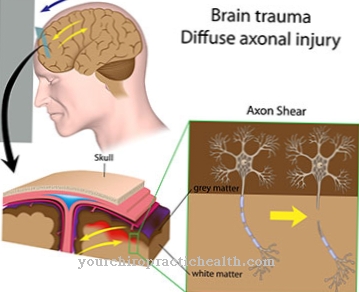




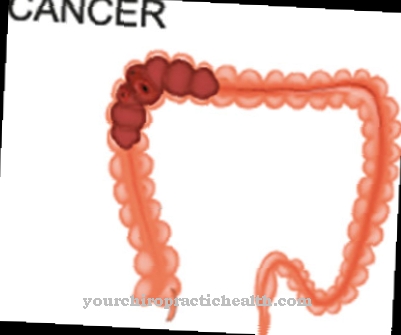
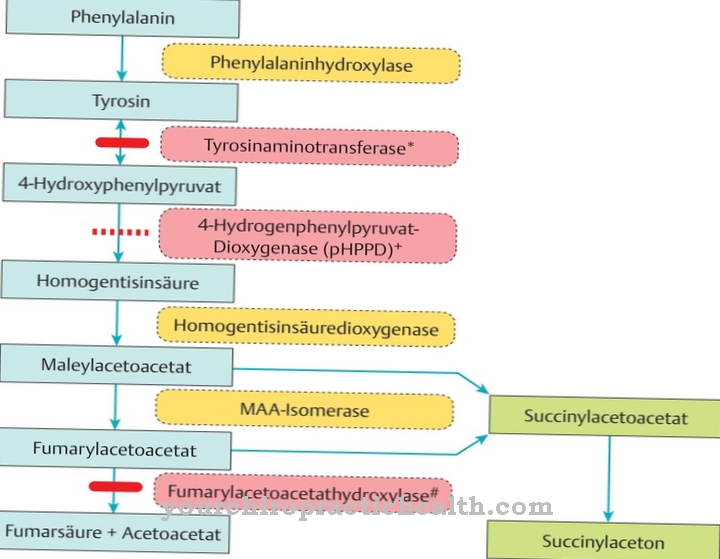

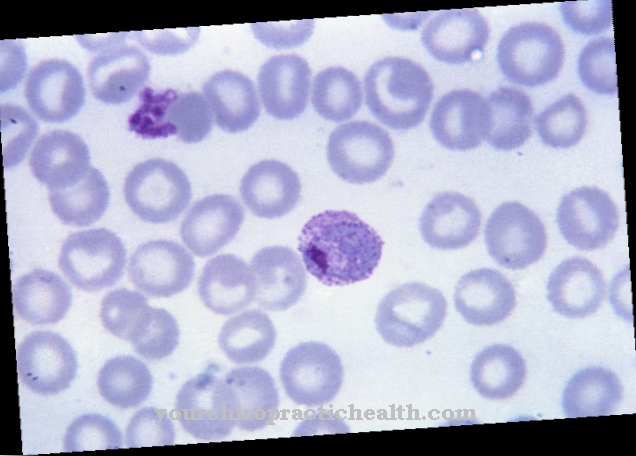











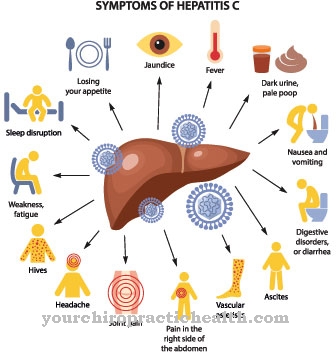
.jpg)


